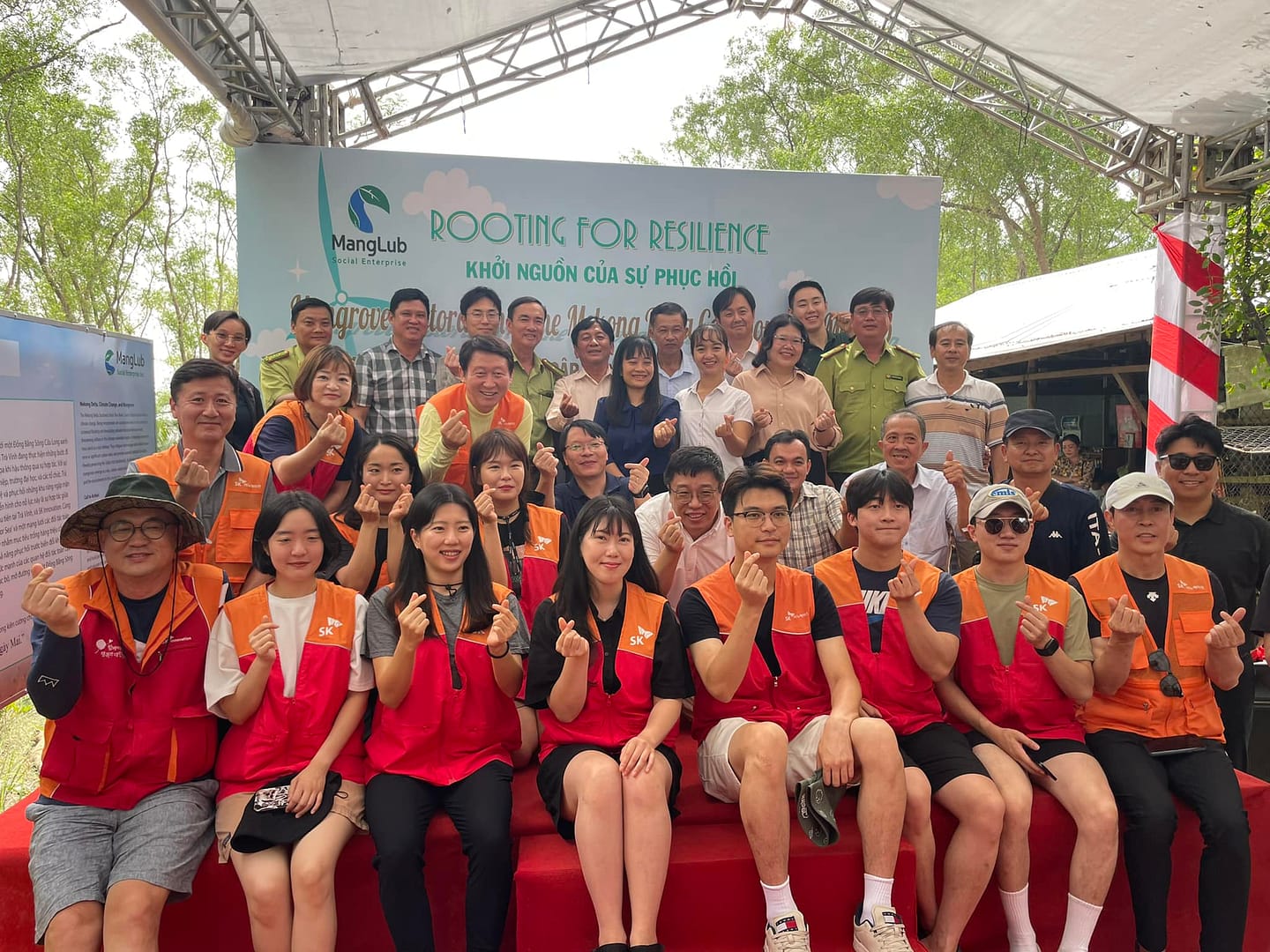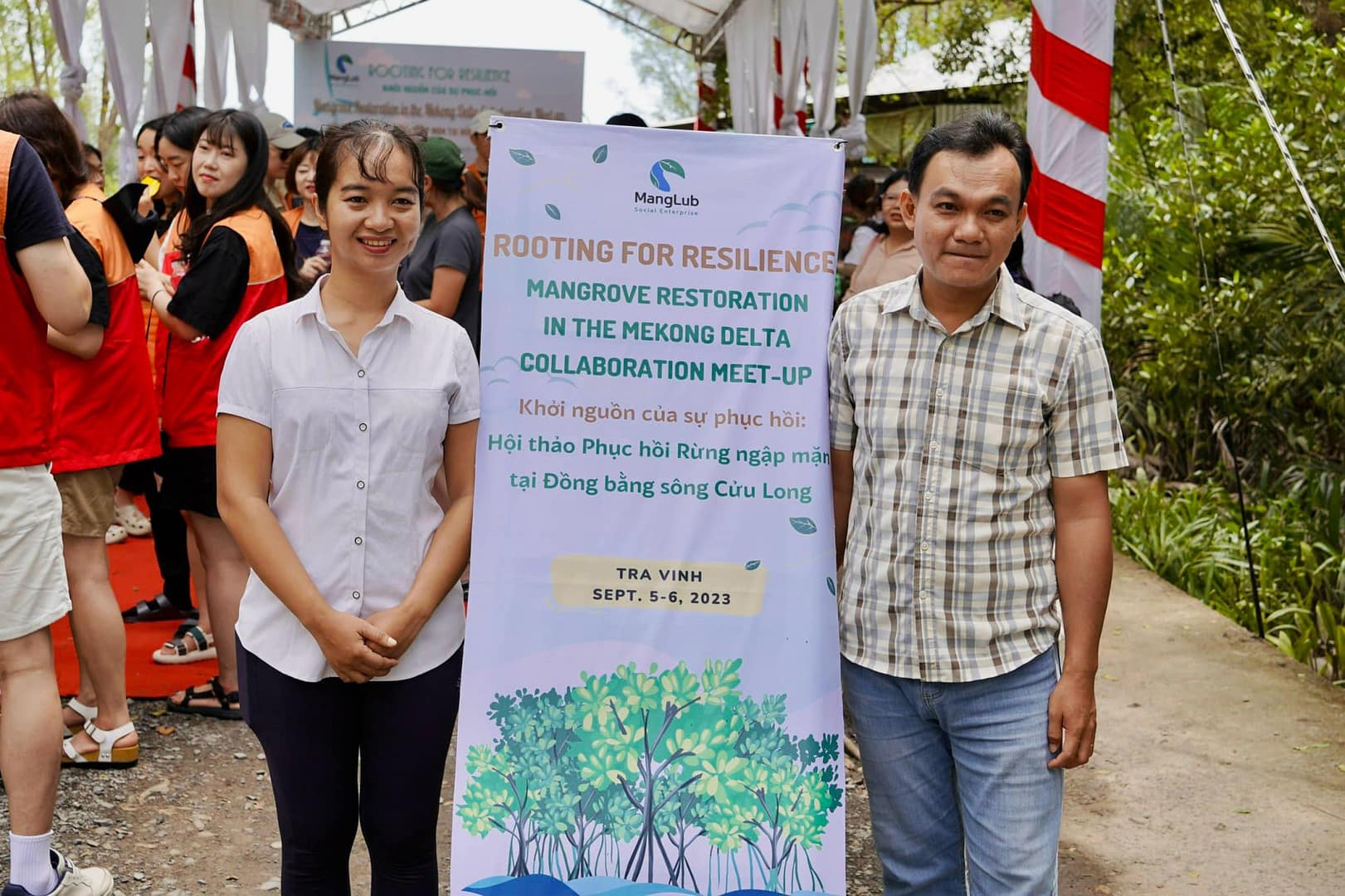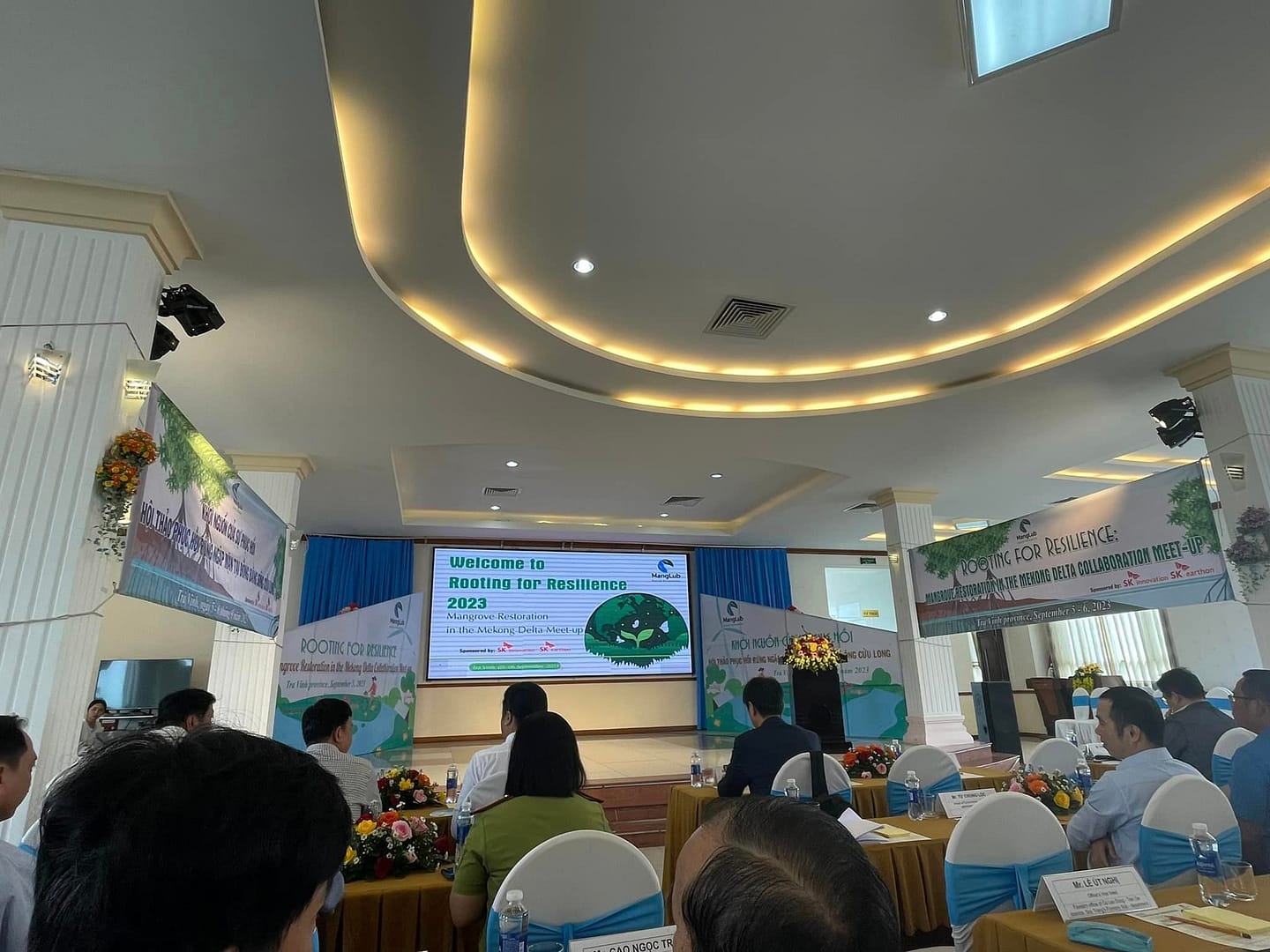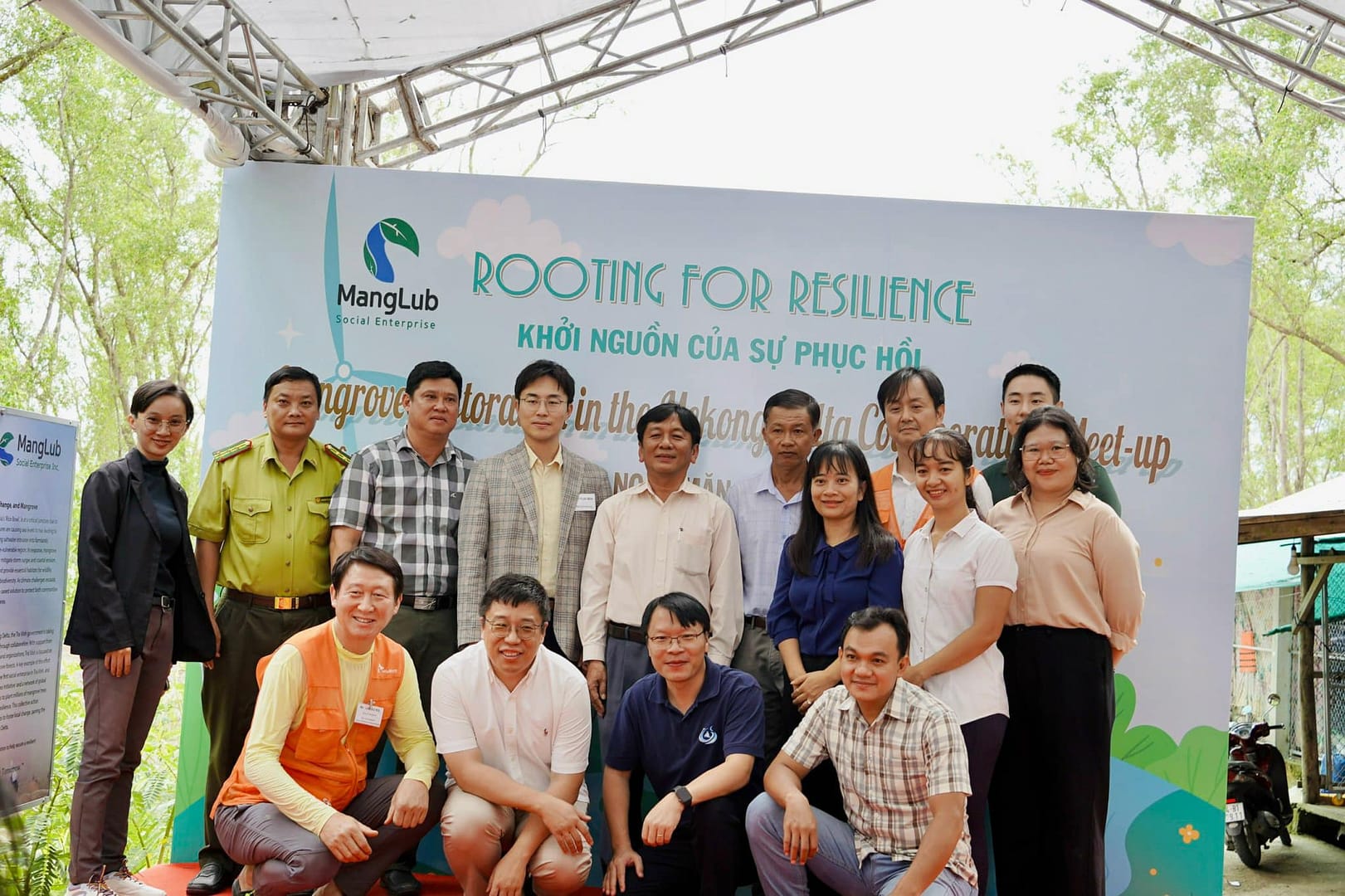
By: lediemquynh
Comments: 0
Mangroves play an important role in mitigating global warming due to the ability of absorbing carbon five times more than tropical rainforests and conserve biodiversity by providing natural habitats. However, because of rapid development of tourist attractions and the development of shrimp farms, more than half of the mangrove area is disappearing.


On September 5 – 6, 2023, IUCN representatives participate in the “Rooting for resilience: Mangrove Restoration in the Mekong Delta collaboration Meet-up” organized by social enterprise Manglub, which took place at Tra Vinh City. Manglub is also a member of the VB4E project coordinated by IUCN. The meet-up presented some of Vietnam’s environmental policies and climate crisis; shared strategies for restoring mangrove forests in Tra Vinh province; forms of mangrove restoration by companies to discuss solutions to overcome the climate crisis. The meet-up was organized by social enterprise Manglub – an outreach member of the VB4E project.
Since 2018, Manglub began receiving funding from SK oil and alternative energy group (Korea) through SK Innovation and SK Earthon. Up to now, Manglub has planted 727,000 mangrove trees including “Rhizophoraceae” and “Sonneratia caseolaris” on an area of 193 hectares in two provinces of Tra Vinh and Soc Trang. In addition, within the framework of the “Seeds for Sea” program, SK innovation representatives donated 2,000 “Intsia bijuga” to the locality.

As an organization working in the field of wetland conservation, IUCN has been supporting mangrove restoration initiatives as a Nature-based Solution (NbS) because of the ability to absorb CO2, retains sediment, offsets sea level rise and protects against natural disasters. In addition, mangrove forests also provide biodiversity and abundant living resources for coastal communities.

